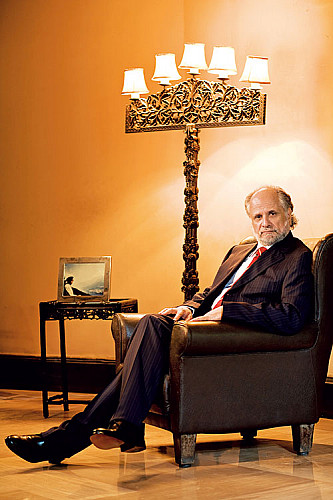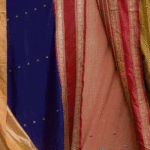The Natty Professor
I studied Homi Bhabha’s theories on the post colonial as part of my Master’s programme in Literature at St. Stephen’s College. To meet him for an interview and dress him up in labels was not something I would have thought while writing a paper aided by his perspectives. Bhabha stopped in Mumbai en route to London and to my surprise, the philosopher is also one of the most stylish men you’d get to meet in the literary world.
Homi Bhabha is the Anne F Rothenberg Professor, English and American Literature and Director of Humanities Center at Harvard since 2001. His career as a teacher and researcher goes back to the 1970s when he joined Oxford for an MA in English after graduating from Elphinstone College in Mumbai. He went on to teach at universities across UK and USA and in 1990 wrote Nation and Narration, challenging the essentially Western idea that all post colonial nations are homogenous. Instead he said that the very sense of nationhood is narrativised and there is always ambivalence between the coloniser and the colonised. In The Location of Culture (1994), he proposes a change in the way cultures are and have been analysed and represented.
The literary star says he has been interested in literature from childhood, influenced by his mother’s love for books. Born in 1949 in Mumbai he grew up “more or less” in his sprawling South Mumbai apartment. The interiors done up in wood and beige and auburn are resplendent with old world Parsi charm. His study is not the only place full of books from Mallarmé to Jhumpa Lahiri. Traces of the ‘love’ can be found all over the house.
Bhabha comes to Mumbai thrice a month and it’s not a vacation. He says, “I feel enough of a Bombayite not to feel nostalgic.” Yet calling Mumbai home is problematic for him. He feels extremely comfortable here and would not have left if that was the only criteria. A career in academics took him from UK to Europe to US.
The theorist is currently busy threading an argument over how the moment of globalisation is also a moment of transition. Where the old and the new seem to continuously confront each other. He says, “The way in which at the same time as we have great technological and cultural advances in globalisation we also have major human rights disasters and profound historical and social traumas. Things like genocide or famine that have been with us centuries. We are always telling ourselves, this will never happen again but they do happen. Especially now in the context of this great optimism that science and technology can really liberate us from these social and historical disasters yet they don’t. So the moment of globalisation is neither the moment of something very new or something old.”
Bhabha is also interested in literature post-Truth and Reconciliation Commissions in countries like South Africa and Chile. He says, “I’m interested in the emphasis on narrative and personal story telling that is part of that experience. It’s what I call the right to narrate. The right to be able to tell your story.”
Besides dissecting politicised topics Homi Bhabha’s interests extend to cooking. The man of letters is fond of combining starkly different flavours and claims that a connoisseur of Indian food may not appeal to his rather non-traditional approach to food. I had thought I had discovered a side of Bhabha most don’t know about. He disappoints me when he says the same question was asked by a journalist in New York about six years ago. However, what most people, even those who study Bhabha at Indian universities, don’t know is that last November saw him on the list of 25 best dressed people in Boston in Boston Globe. And no. He is not a dandy. As far as his style goes, he dresses like a gentleman with a sense of humour. Like his cooking, Bhabha likes to displace something straight with something startling. In his own words, “I make a virtue of what is a very diverse and unplanned set of clothes.” A conservative ink blue jacket is set off with a bright green scarf and a mandarin collar jacket in black satin with fuschia lining is something he usually wears with a black tee. Dressed in a dark pinstripe business suit and black brogues he is subtle and elegant yet the bright red tie shows his adventurous side.
The very last question that arises is that if Bhabha’s sense of eclectic surrounds his persona, there may be very little that intrigues him. And I am not surprised to find that it’s true. He says, “I have very broad tastes. It would be very difficult for me to talk about one thing as being particularly intriguing but since you ask…. I suppose, in pop culture I am intrigued by works that portray crime families particularly when it’s also accompanied by a fine eye for cultural detail as in The Godfather.”
Related posts from Verve:
Verve Trending
Sorry. No data so far.
us on Facebook to stay updated with the latest trends






